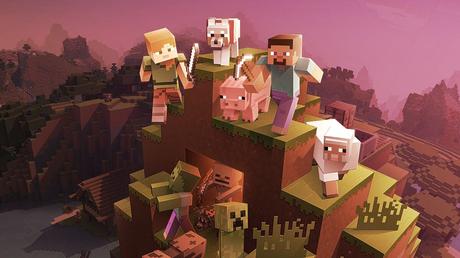
Yat Siu, co-founder of crypto/NFT venture firm Animoca Brands, called the latest Minecraft NFT ban “hypocritical” and emphasized that, contrary to popular belief, nonfungible tokens (NFT) may be inclusive.
As was already known, Mojang Studios, the company that makes Minecraft, banned all NFT integrations on July 20. The company said that NFTs go against its values because they encourage price speculation, scarcity, exclusion, and maybe even rug pulls.
Siu talked about how upset he was with Mojang Studios. He pointed out that NFTs were already being used in Minecraft before the ban.
NFT Worlds, for example, ran a metaverse platform with crypto and NFT ecosystems on open source Minecraft servers. The operation seemed to be quite popular, since it was said to have had more than $80 million in NFT trading volume and about 100,000 participants.
The co-founder of Animoca Brands thought it was ironic that Minecraft would limit a small number of its users, since the company has said that “inclusion” is a top priority and has said that NFT integrations in games make people feel left out.
“What NFTs do is redistribute the economics of the players who add value to the game which then also has the same effect of decentralizing and redistributing the power dynamics inside games. [Therefore] allowing for more freedoms and power to the community instead of just a community.”
“Property rights and freedoms are intertwined, the next natural evolution is digital property rights to either enhance or actually produce true digital freedom,” he said.
Siu agrees that many people in the traditional gaming community are against NFTs, but says this is mostly because they worry that games will become too profitable and “much less fair.” In this case, players could choose to play on NFT-affiliated servers or not, and normal Minecraft users were not forced to use NFT integrations.
Siu said that putting down the opinions of minorities “really hurts the whole community and slows down its progress.”
Siu says that the technology or digital property itself doesn’t make NFTs more or less inclusive. Instead, it’s how the technology is used to make community value that makes the difference.
He said that, in the right situation, NFTs in games or the Metaverse could help users change how the platform’s money and power are shared. Siu says that NFTs give users a tokenized interest in their favorite platforms, which they can then use as they see fit. This is different from the Web2 approach, which doesn’t let users own their content and data.
“What NFTs do is spread out the economics of players who add value to the game. This has the same effect as decentralizing and spreading out power dynamics inside games.” As a result, the community gets more freedom and power and is no longer just a group of people.”
“Because property rights and freedoms are tied together in a way that can’t be broken, the next logical step is digital property rights to either improve or create full digital freedom,” he said.
Leave this field empty if you're human: